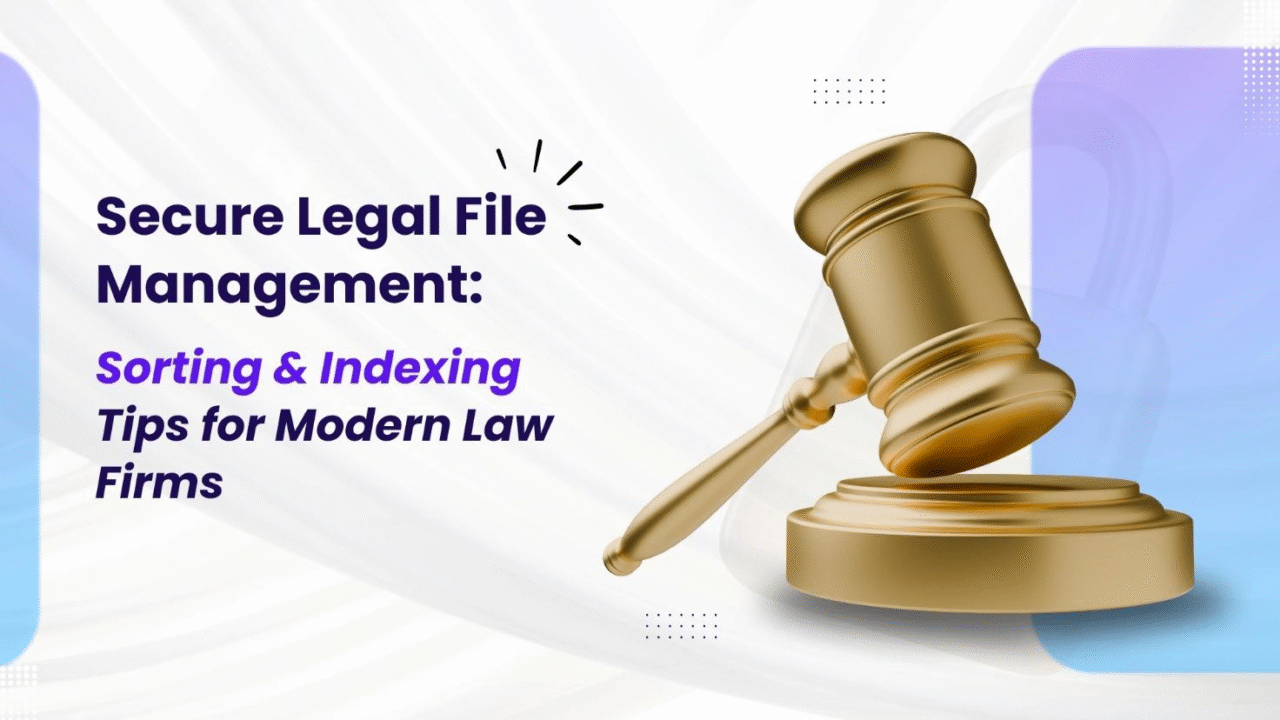For law firms, organizing and safeguarding client information is a responsibility tied to confidentiality, compliance, and efficiency. Every case file, email, and medical record may contain sensitive data, and without a secure system for sorting index medical records, mistakes can occur, which can lead to severe risks.
Why is Sorting and Indexing Necessary?
In the legal profession, sorting and index medical records are necessary because they ensure easy access to information while protecting the confidential data. Sorted files help law firms comply with strict privacy laws and reduce time wasted while searching through case materials. Poorly indexed files increase the risks of overlooked evidence, missed deadlines, or even mixing up client records. For firms managing voluminous case files, a structured system can save time and resources.
1. Create a Standardized Sorting Method
To avoid confusion among staff, every law firm should adopt a clear structure for organizing records. Files can be arranged by provider notes, diagnostic reports, or billing. Creating sub-folders, chronological order, and labeling files with clear, specific names prevents misplacement. Importantly, both digital and physical files should follow the same system to maintain uniformity across the firm.
2. Secure Indexing Practices
The indexing process makes retrieval accurate and faster, but it must be done securely. A consistent naming format, like case number, client name, or date, ensures files are searchable. Law firms should digitize physical files, allowing access through secure login-based systems. Manual indexing may be sufficient for small sets of files, while larger documents need tools like Optical Character Recognition (OCR). For reliability, regular backups and system maintenance are necessary.
3. Prioritize Data Security
As a legal professional, protecting client information must be your top priority. Limit access to indexed files to authorized staff. Avoid open folders that anyone in the office can see. Encryption adds another layer of defense against data breaches. Keep a log of who opens or edits a file. This ensure accountability and makes it easier to trace issues. For physical records, locked cabinets and restricted keys ensure security. A secure system not only protects clients’ data but also shields the law firm from legal and financial risks.
4. Leverage Technology
Technologies can make the sorting and indexing records process much easier. New tools allow firms to organize, search, and protect files efficiently. File management systems and cloud storage solutions allow firms to search and organize records efficiently. OCR technology converts scanned documents into searchable text, and AI-powered tools can automatically categorize files. Choosing the right AI medical record review company will help you with your budget and data privacy requirements.
5. Audit and Update Systems Regularly
Even the best system requires ongoing review. Regular auditing will help you detect errors or duplicates and evaluate whether current methods remain effective. Updating to more advanced, secure sorting & indexing records, and user-friendly tools ensures efficiency. Since legal requirements often evolve, firms must adapt to remain compliant. This habit of reviewing and improving ensures your law firm remains both efficient and compliant.
To sum up,
Law firms that invest in standardized systems, security practices, and modern technology can work more efficiently while staying compliant.
For firms looking to save time and strengthen security, LezDo TechMed, a top medical record review company, offers professional support with structured and compliant medical record sorting and indexing services. With their expertise, law firms can ensure that sensitive data remains protected, organized, and ready for use in complex legal matters.






